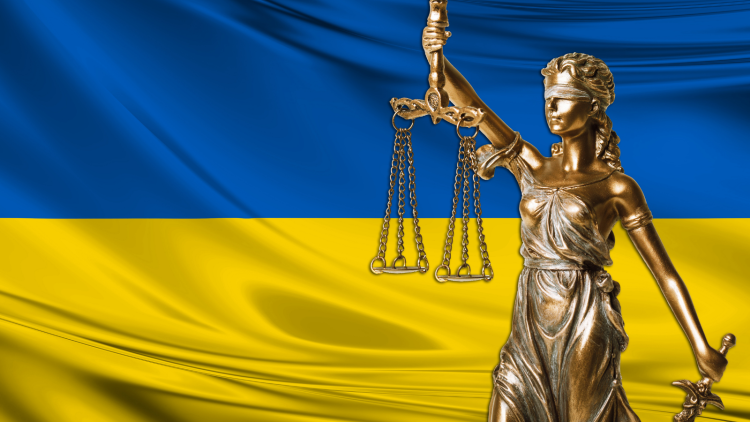
On February 24, 2022, Russia attacked Ukraine. Ukrainian CSOs and civil society have been at the frontlines, providing humanitarian support to people. Some CSOs remained vocal about human rights violations. A supportive CSO environment is paramount for them to be able to maintain this crucial work. The President and the Cabinet of Ministers adopted several legal measures related to CSO registration, reporting, simplified rules on taxation, mechanisms for humanitarian assistance and cooperation available to CSOs. Below we provide a brief overview of the key legal developments:
In the area of Freedom of Association:
1. CSO registration to resume. Since February 24, most of the state registers, and in particular, the Unified State Register of Legal Entities, Individual Entrepreneurs, and CSOs (USR) have been suspended for legal entities, including public organisations and charitable organisations. The CSO registration will resume through specific registers, which are to be confirmed. Other important issues regarding CSO registration are:
- Registration documents for new public organisations are yet to be adopted.
- Trade unions, political parties, etc., shall not be able to register under martial law.
- Registration fee and fee for changes to statutory documents shall not be charged for CSOs assisting the military operations and actors (e.g., the army).
- Documents can be sent via e-mail or other means of communication in electronic form, and if they meet all requirements, registration shall be carried out immediately upon receipt.
2. De-criminalisation and simplified reporting rules for public associations and charitable organisations.
- Deferred reporting deadlines: Reports related to taxes, accounting, finances, audit, and any other reporting document can be provided within 90 calendar days after the cessation or termination of martial law.
- No inspections: During the crisis, no inspections shall be carried out by the competent authorities on the timeliness and completeness of any reports or documents of a reporting nature. All ongoing inspections are also stopped.
- No liability for not complying with tax obligations.
In the area of Access to funding:
Simplified rules for in-kind humanitarian assistance by CSOs. Persons carrying humanitarian goods, such as food, medicines, or vehicles shall fill in a shipping document or a declaration. Both the State Border Service of Ukraine and the State Customs Service of Ukraine are obliged to provide a simplified regime not just for individuals, but also for public associations and charitable organisations without any interruptions. CSOs can carry out the declaration and customs clearance of humanitarian goods at the border crossing point.
In the area of State support:
1. Tax incentives for public associations and charitable foundations. On March 15, the Parliament adopted the Law of Ukraine No. 7137-d which contains important tax amendments under martial law. The key changes related to CSOs are:
- The threshold for deducting donations to CSOs is increased to 16% of the total taxable income (previously the limit was of 4%).
- CSOs transferring funds to the Armed Forces of Ukraine, as well as to health institutions, keep their “non-profit status”, regardless of this not being in line with the type of charitable activity specified in their statutes.
2. CSOs will benefit from the new mechanism for providing humanitarian assistance to civilians. The funds in the mechanism come from individuals and legal entities, residents and non-residents as charitable donations, humanitarian aid, grants, and gifts. The recipients of funds include charitable organisations and public associations as well as military administrations, executive committees, and enterprises. The procedure for CSOs to apply, receive, and use funds includes:
- CSOs submit their proposals via email.
- The Ministry of Social Policy transfers funds to the recipients. (Based on the decision of the Commission on the distribution of funds)
- CSOs assist the civilians and inform the Ministry about the spending on a weekly basis. Unspent funds are returned to the Ministry.
In the area of CSO – State Cooperation:
1. CSOs – State Cooperation for helping civilians. UCIPR has prepared detailed information on possible and useful CSO cooperation with local authorities under the new circumstances:
- CSOs can involve local self-government in humanitarian projects, as they continue exercising their powers under martial law. For example, CSOs can organise events, request offices for work, aid vulnerable groups etc.
- CSOs which implement projects related to defense, and the protection of the population and territories during war crises, need to coordinate with the military administrations.
2. CSOs engaged in monitoring human rights violations can report cases on https://humanrights.gov.ua/. The Office of the President of Ukraine, the Ministry of Justice of Ukraine, the Ministry of Foreign Affairs of Ukraine, and the Representative Office of the President of Ukraine in the Autonomous Republic of Crimea initiated the creation of a web-platform. Their aim is to provide a single place for different persons and entities to submit evidence of human rights violations committed by the Russian Federation in Ukraine. The evidence is to be used for the defense and representation of Ukraine at the European Court of Human Rights and the International Court of Justice.
